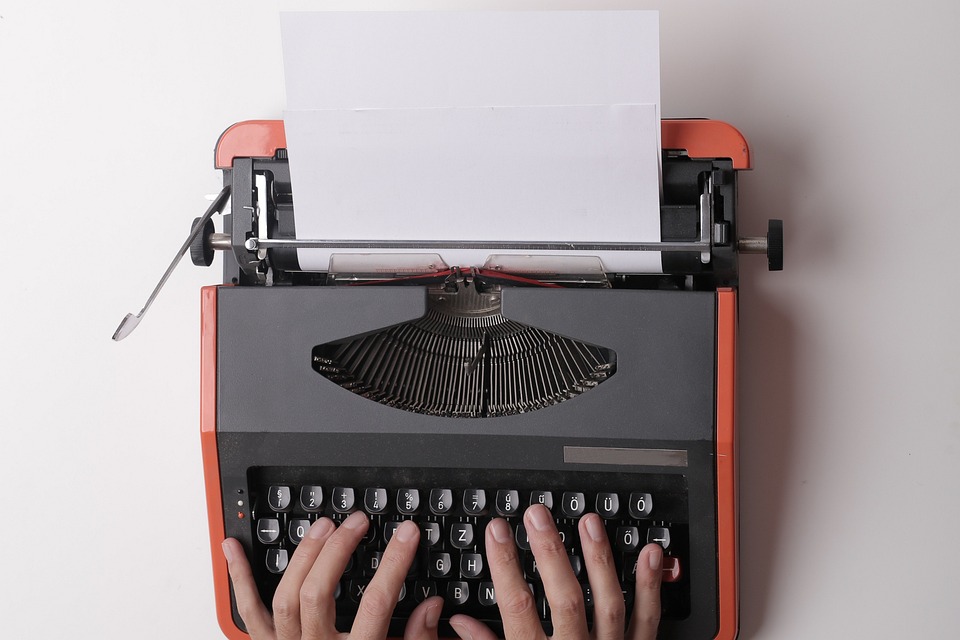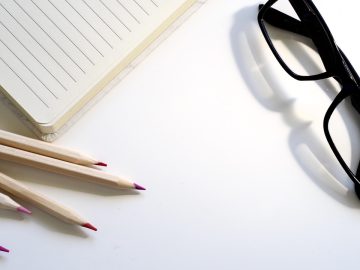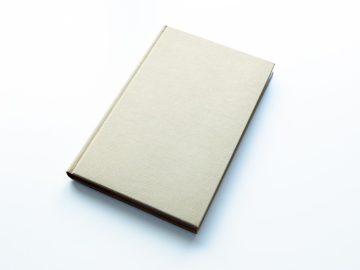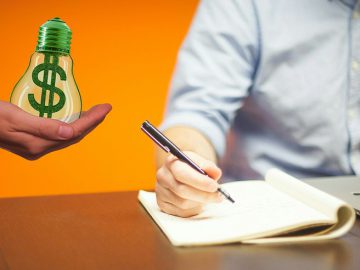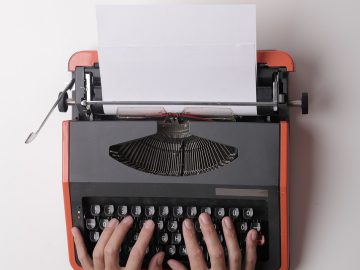In this week’s Money Diaries, we speak to Sophia Petra Lee. Sophia is a creative working in the e-commerce/D2C industry. She is also a musician who hopes to pursue making music full-time. While rebuilding her financial habits, she is also mindful that all areas of life require balance, and is learning to make the right trade-offs. Currently, her salary is between S$4000-S$6000 per month.
Money Diaries #4: A Copywriter’s Quest to Pursue Music Full-time

How would you describe the life stage you are in at the moment?
I’m pretty much no longer a young adult (by my standards anyway) and have been a working professional for 10 years now. I’m single, living in relative independence, and have been steadily progressing in my career at a reasonable pace.
Living situation: are you renting, staying with your parents, or do you own a home, etc?
I’m renting a room at my friend’s grandparents’ home, just 5 minutes away from my family. My friend and I go way back – we’ve known each other since we were in primary school and I know her family (and they know me). I’ve been renting from them for almost 5 years now and it’s a pretty sweet deal. I get internet and utilities covered in exchange for (extremely) affordable rent, and I occasionally help out when something IT-related goes wrong at home. 😂
Breakdown of typical weekly expenses:
- Lunch: $0-5 (depending on whether I cook at home or eat out)
- Snack or the occasional bubble tea: $6-7
- Dinner: $5-$25 (depending on whether it’s alone or with friends)
- Groceries: $30
At the time of this interview, I spent a total of $141.70 in a week. Depending on my social activity for any given week, this may go up to $170 to $200.
In general, my biggest expense tends to be going out to have dinner with friends, which I try to limit to 2-3 times a week for financial reasons.

Estimate of how much you save every month:
About $800, depending on the month and whether there are birthdays/treats for friends, and lately I’ve had to fork out a lot more money for creative projects… so this is an estimated average amount.
What are your financial/investment goals?
I’d really like to start investing again in general. I fell off a couple of years ago because it just wasn’t front of mind for me, but now that I’m about to turn 30, I’m starting to feel differently about life.
I can literally feel my priorities shifting – I’m starting to think about things like settling down (whether with a partner or on my own) and that means maybe moving into my own place or even applying for a Master’s programme (one of my lifelong dreams!).
Also, as a musician who wants to become a Full-Time Musician, my expenses are only going to increase the older I get and the more art I create.

A breakdown of the costs associated with being a musician (that most people don’t know about):
- Song production: Costs may involve renting the studio, hiring sessionists (musicians who will track for you if you’re not an instrumentalist yourself), and of course, paying the producer for the entire project. Each producer will come with their own rate based on song length, their reputation, and I like to think that there are some out there who might offer a slight discount if, say, you engage them to produce an entire EP or album.
- Music video production: Hiring external agencies to help conceptualise music videos, handle location rental and casting, and also other logistics like photography, hair and makeup, transport, etc.
- Album visuals and artist photos: Writing songs and producing them is only 50% of the work. The other 50% is marketing, and that usually entails posting on social media and getting people to look at you and your music. This may also include engaging designers to conceptualise and create album art.
- Merchandise: The artist’s branding matters (perhaps more than I’m comfortable with sometimes) and you always want to try and garner as much support as possible so visibility is key. That means swag that you can sell at gigs, joint shows, and especially when you hold your own concerts.
In essence, I want to invest and save enough to feel comfortable and safe, without compromising on my dreams and passions.
Excluding CPF, I’d say my first milestone/major goal is hitting $100K, spread between emergency funds, enough to afford tuition, and a little bit in investments (just to get the habit going).
How close/far would you say you are from your financial goals?
I’m pretty far away from it. It is what it is. Basically starting from scratch because of medical expenses (I have diabetes and two elderly dependents at home who are living off a monthly allowance from me, along with having their medical expenses covered by me as well) and a lot of expenses funnelled towards music-making in the last two years. By the end of this year, I will have spent upwards of $6000 on my forthcoming body of work, an album I’m releasing in July of this year.
Describe your investment approach / What steps have you taken or are taking towards achieving these goals?
Very recently, I decided to dramatically reduce my day-to-day expenses and enforce more discipline in my monthly spending.
I even returned to logging my expenses down on a spreadsheet to stay more accountable! It stresses me out sometimes, but it must be done!
It used to be that I was very liberal in my spending especially when it came to treating my friends, buying ultra-specific birthday gifts, and generally not putting a price on relationships I consider vital to me.
The weekly breakdown that I detailed above is therefore relatively new, having just started at the beginning of the year.
This was also partly motivated by a conversation I had with my insurance agent a month ago too.
One of the big things I agreed that I needed to start doing was to prioritise and pay off my outstanding loans (I still have some leftover from the bank loan I took to finance my Bachelor’s degree), start putting more money away for the emergency fund, and also carve out a portion of my budget for investing.
As a start, I’ll invest into ETFs and dollar cost average my way back in. Probably $200 a month.
Related Links:
What are some challenges you’ve faced?
Honestly, it’s a bit of a double-edged sword – I’m talking about my creative pursuits. It’s hard to say my music is more important than daily living expenses, or more important than paying off my education loans… but at the same time, I don’t really believe in waiting around any longer for an opportune time – whatever that is – to finally debut the music I’ve been working on for so long. I’ve had to make some sacrifices every now and then and not save as much as I’d like to, as a result. I’m fine with that, though I wish it was easier.
How would you describe your mindset with regards to money?
I think that if there’s something you really want (e.g. an overseas trip, a big-ticket item) that would make you happy and you’re able to afford it – and I’m making the assumption here that this is going to a one-time occurrence and not something you spend on, like, every other month – you should get it.
It’s all really subjective and I’m not trying to enable bad spending habits or anything, but I do believe that to a certain extent, money can buy happiness.
Money represents freedom, mobility, and provides access to things that you otherwise wouldn’t have been able to possess, whether it’s an experience or a tangible, material object.
Of course, in all things, balance. I don’t believe in judging how someone else spends their money, but a little bit of restraint and wisdom goes a long way.
I just would never say no if, say, a friend came to me and asked if she should buy that Dyson or whatever. If everything was about being frugal and saving every other dollar, life would be a little too miserable.
Is there an experience(s) that has shaped your relationship with money? How has it influenced your decisions?
I grew up in a family that almost always never had enough. We were definitely poor. There were some years where I wasn’t sure if we would actually survive and even had to depend on the charity of the church.
Living like that until I started earning my own salary definitely cultivated a scarcity mindset, much to my detriment. In the early years of my career I wouldn’t be able to hold on to my paycheck for long because it was a kind of freedom I’d never experienced before.
I felt like I was finally in control of my life, whereas my father consistently failed to hold down a job because he was, quite simply, lazy. It’s kind of strange… I would feel like I needed to save more than ever because I didn’t want to go back to those days of never having enough, but on the other hand I was also determined to finally have “that life” where I’d finally get whatever I want, whenever I wanted it.
Now there’s a bit more balance to the way I think about money. I can still have the things I want that will make me happy, but I’m a lot more deliberate and careful about my finances.
Every month I reassess my priorities and act accordingly, and now that I have loftier (or just bigger) goals on the horizon, like wanting my own home, I have to be even more deliberate with money.
What is one money habit you struggle with the most?
I love spending time with my friends. I cannot emphasise this enough.
Consequently, that also translates to spending money with my friends. And if there’s an interesting restaurant or cuisine someone wants to check out, I next to never decline the idea.
I don’t often tell people that I have a budget but I’m learning to do that more often these days… and if I can’t bring myself to do it, then I’ll just space out my social events so I don’t overspend in a single month.

This is also somewhat related to my friendships, but I’m also really enthusiastic about travelling to meet my friends who live in other countries.
I have to be extremely strict with myself in this regard, because as much as I want to see them, this is one thing I can’t just spend on willy nilly. Ah well.
Is there a financial decision you wish you could do over?
Given the chance, I wouldn’t have stopped investing, and I would have started doing that earlier in life. I know that starting earlier means your returns will be that much higher down the road, and time is absolutely money.
It would have also helped me to cultivate healthier financial habits earlier too, and I think that would have made all the difference. But the good thing is that it’s never too late to start, I guess!
Related links:
What are you most concerned about when it comes to personal finances?
Just having something happen to me someday that I can’t afford. I’m trying to watch my health much closer these days to avoid that.
At the same time I’m trying to save as much as possible to prepare myself for a mishap or some other. I don’t have family that I can depend on for an emergency loan or someone who would swoop in and help to share the burden of staggering medical bills, so I’m pretty much, for the most part, on my own.
If you won S$1m in the lottery tomorrow, what would you do with the money and why? How would your spending/lifestyle change?
I’d pay off ALL my loans, finance another album, and throw the rest into investments. I’d move somewhere cheaper, buy an apartment.
Not sure if $1m is enough to accommodate all of that, haha. But definitely I’d use that capital to get ahead and make up for lost time with regards to investing.
I don’t think my spending would change very much – at least, I hope not! Lifestyle inflation is a real thing and that’s one of my fears, that with more money, I’d succumb to the mindset that I can spend recklessly because of that feeling of comfort and safety.
What is one practical financial tip that has been useful in your own financial journey?
Always pay off your credit card debts first, and in full.
Otherwise, it just creates the illusion, in my opinion, that you have more money that you can spend.
Paying the amount in full every month helps me to register the fact that I, in fact, did spend that much money last month.
What is a personal finance related lesson you’ve learned that you think others might benefit from?
You know how people are always so afraid of looking at their bank accounts? I’ve learned to overcome that dread and even monitor my bank statements every once in a while in order to eliminate that fear.
Also, doing that keeps you well-informed about the money that’s going out every month.
There were some subscriptions that I’ve had for a long time that surprised me because their prices had changed.
Don’t let everything just fall away into the void after you’ve tapped your card. It’s better to know now rather than much later. I promise it will be okay.
Key Lessons

Want to share your financial journey? Reach out to us to be featured in our Money Diaries series!
Join our Beansprout Telegram group for the latest insights on Singapore stocks, REITs, bonds and ETFs.

